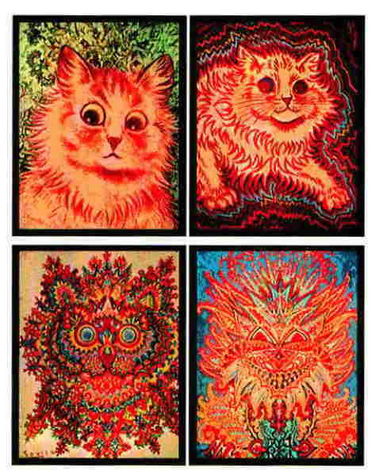
People suffering from Schizophrenia will experience both positive and negative symptoms, typical characteristics of the mental disorder. This article seeks to discuss both symptoms in more detail.
Positive symptoms define all symptoms which are more specific to Schizophrenic patients and are not normally experienced by healthy individuals. These signs point to losing touch with the real world. Positive symptoms can be either severe or mild which are unnoticeable by people around. Positive systems include delusions, illusions, hallucinations and having nebulous thinking.
Negative symptoms define all symptoms that can occur in any healthy individual in response to certain emotional or physical setback. Negative symptoms are not blatantly noticeable and are hard to identify. Here is a list of the different negative Schizophrenia symptoms:
1. Dullness in the mood and voice of a person: the person may speak in a monotonous fashion without any expressions on the face or any movement of the face.
2. Depression and loss of pleasure in day to day life: the person loses interest in any activity, feels hopeless, helpless, miserable and pathetic, experiences guilt, and has constant self depreciation thoughts in his mind. such a person does not feel enthusiastic or interested in anything in spite of rewards, recognitions or encouragement.
3. Lack concentration during the day to day activities: the person is not motivated, undergoes loss of enthusiasm and loses concentration in many activities.
4. Emotional imbalance and social withdrawal: the person experiences lack of emotion and loses connection with his loved ones. the person is unable to respond to any external emotional stimuli. He is likely to show emotions at the wrong time, for example, crying at a wedding and laughing at a funeral. He likes to spend time alone and will choose not to talk to anyone even when he is encouraged to do so.
5. Failure to articulate: When the frontal lobe of the brain is damaged, a Schizophrenia patient will not be able to communicate and process thoughts properly.
6. Incompetence in planning, organizing and following instructions: the person is unable to perform planning or organize things in an orderly manner. He will find it challenging to organize and express his thoughts when communicating to people. Hence it becomes very difficult for a normal individual to understand a Schizophrenic patient who sounds very confusing, illogical and unclear in certain situations. Schizophrenic patients can also face difficulty in following instructions to perform straightforward tasks.
7. Loss of appetite: the person has loss of appetite and does not feel like eating even if he has not had any food for long and his body requires it.
8. Lack of personal hygiene: the person becomes very lazy and seems like he cannot take care of himself. He even neglects his day to day tasks like bathing and maintaining personal hygiene.
9. Violent behaviors: Generally, this symptom is observed only in Schizophrenic patients who have been short tempered or who have committed crimes in the past. in cases of Schizophrenia patients, these violent behaviors worsen.
10. Talking about self destruction: the person might talk about committing suicide. When such incident happens, the patient must be taken seriously and medical attention is needed immediately.